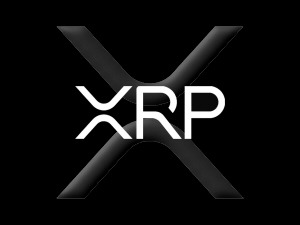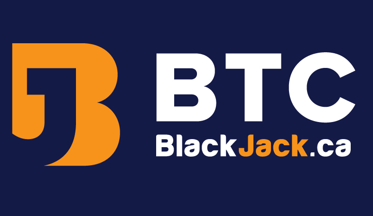Learn to Trade and Bet with Ripple at Online Casinos Accepting XRP in Canada

It seems like all the good crypto currencies were created with a unique purpose in mind. Ripple’s XRP is certainly one of them. Instead of undermining or circumventing the realm of fiat currency, Ripple complements the world’s financial services industry. Its monetary transfer network is capable of verifying and quickly transmitting fiat currencies, crypto currencies, and even more tangible commodities such as gold and silver.
The Ripple network is, in theory, a much more efficient replacement for the international bank transfer system known as SWIFT. Transactions convert to the network’s native crypto token, XRP, enabling near-instant transfers at an extraordinarily cheaper rate. The cost often comes to just a few cents; astoundingly cheap in comparison to international wire fees of $40-$60 for the sender, plus $15-$25 for the receiver. At these prices, it’s clear to see why the Ripple network has so much potential to overtake SWIFT. If it weren’t for an ongoing tangle with the US Securities and Exchange Commission (SEC), it probably would have done so by now.
Moving money isn’t the only thing XRP is good for. Like other cryptos, you can buy and sell it on crypto trading exchanges. You can even use it to place wagers at special online casinos where crypto currencies are welcome. Continue reading, and we’ll teach you how all of this is possible. But first, a brief history lesson into Ripple, including that pesky little issue with the SEC.
History of Ripple – The Good, the Bad and the Ugly
As a payment processing network, Ripple pre-dates the first successful launch of crypto currency by several years. The Ripple network, originally Ripplepay, dates back to 2004. Its founder was Canadian web developer Ryan Fugger. His intent was to introduce a means of facilitating financial transactions for an online community. But it never got off the ground under Fugger’s direction alone. It wasn’t until 2011, when Jed McCaleb got involved, that the network began its conversion to a digital currency system, based on native XRP crypto.
McCaleb set to work developing a new system revolving around cryptographic tokens. He brought fellow developers Arthur Britto and David Schwartz on board. Together, they envisioned a blockchain that effectively resolved each of Bitcoins shortcomings. Their vision was an ultimate success, evident in the 2012 launch of OpenCoin.
Running XRP crypto on the XRP Ledger, Ripple’s OpenCoin hit the ground running. Utilizing a protocol that was faster and more energy efficient, it is far less reliant on central exchanges than Bitcoin. In 2013, with the help of new CEO Chris Larsen, the team rebranded the company as Ripple Labs Inc; later shortening the name to Ripple in 2015.
Ripple is the Network, XRP is the Crypto, XRPL is the Blockchain
A common misconception is that Ripple and XRP are the same thing. They are, in fact, two different entities altogether. Ripple is a fintech company that produces and operates global payment systems. XRP is the native token the Ripple Network utilizes for its transactions. Binding them is the XRP Ledger, or XRPL, which is the blockchain upon which all XRP transactions record.
The Curious Supply & Demand for XRP
Upon creation, it founders issued 100 billion XRP. The first 80 billion were put in reserve for funding the company and its future developments. The remaining 20 billion were split between the founders. Instead of giving the public the ability to mine blocks of XRP, new tokens would sell into the market at the company’s discretion, from the original stash of 80 billion.
In 2017, Ripple moved 55 billion XRP into an escrow account, from which it was able to sell a maximum of 1 billion XRP per month. Any remaining XRP would return to the escrow account. Over 32 months, 32 billion XRP were up for sale. But only 6.2 billion of them actually sold. The remaining 25.8 billion were put back into reserve. As of October 2021, the escrow retains more than 47 billion XRP.
A Brilliant Plan – So Why Isn’t it Working?
Ripple’s network is a phenomenal creation, and one that seems poised to overtake the SWIFT network’s international banking system. It so much faster, so much easier, and oh-so-very much more cost efficient. So why isn’t it the world’s leading financial payment system for the institutional market?
The biggest problem lies within the miraculous conception of XRP. Its creators literally took nothing at all, and gave it tremendous value. Imagine taking 100 billion pieces of paper and giving each one of them a miniscule value. Then you put them all together, and attempt to spend them in the real world. This is basically what the creators of Ripple did to fund their company. They didn’t just try. They were successful. It did, however, raise a lot of red flags, spiraling into one massive tumbleweed.
Ripple Faces Legal Tumbleweed
First, there was a class action lawsuit against Ripple in May 2018. It alleges that the company “led a scheme to raise hundreds of millions of dollars” by creating billions of XRP “out of thin air”, then proceeded to sell them to the public in “what is essentially a never-ending initial coin offering”.
This led to a bigger problem, from a much larger foe. In December 2020, the Securities & Exchange Commission (SEC) filed a lawsuit against Ripple and two of its executives (including CEO Larsen) for failure to register XRP as a commodity.
Like most crypto currencies, Ripple doesn’t believe its XRP qualifies as a commodity. The problem is, those other cryptos were created from something tangible, backed by proof-of-work. The way ripple simply put 100 billion XRP into production, then proceeded to sell billions of them to retail investors, without registering them as securities – nor satisfying any application for exemption – that’s where the problem lies.
“Issuers seeking the benefits of a public offering, including access to retail investors, broad distribution and a secondary trading market, must comply with the federal securities laws that require registration of offerings unless an exemption from registration applies.”
Stephanie Avakian, SEC Director of Enforcement
Until this issue resolves, Ripple isn’t likely to emerge as the leading institutional transfer system. In fact, it’s been the catalyst for most major crypto exchanges (Coinbase, Kraken, Binance.US, etc.) electing to de-list XRP from their trading platforms. But that isn’t stopping its XRP crypto from experiencing the same lofty price swings as other major tokens, as investors and other crypto supporters continue to make use of this unique digital token.
How to Buy XRP Crypto Online
Unlike most crypto currencies, there is only one way to acquire XRP, and that’s to purchase them. You cannot mine XRP. You must either purchase it online via CEX / DEX trading platforms, or visit the nearest Bitcoin ATM machine and buy it directly with a debit card. Before you do, make sure you have a way to store it.
Compatible XRP Wallets
Search for compatible XRP wallets online, and you’ll find that most of the wallets recommended are CEX wallets, such as Coinbase. However, if you’ve been paying attention, you already know that Coinbase and a slew of other US-based exchanges de-listed XRP, at least for the time being, due to the SEC’s lawsuit. Fortunately, that hasn’t had too much of an impact on international markets, including those operating right here in Canada.
That being said, our recommendation goes to Binance, which doubles as an exchange and a secure wallet. You may also want to consider Edge Wallet, Atomic Wallet, or perhaps a hardware wallet, such as Ledger Nano or Trezor.
Crypto Exchanges that Trade XRP in Canada
There are plenty of CEX and DEX platforms you can still purchase XRP from. Once more, our top recommendation goes to Binance, partly because it’s one of the cheapest exchanges available, and also because it doubles as a secure wallet. Feel free to look around for other exchanges which may offer additional advantages. Choosing the right exchange really depends on your needs.
Buy XRP from Bitcoin ATMs
Of the 2,000+ Bitcoin ATMs spanning the landscape of Canada, only one brand offers XRP tokens. It’s the Bitcoiniacs line of ATMs and Tellers. At time of writing, Bitcoiniacs operates 50+ locations in Canada, but only a dozen of them offer the Buying/Selling of XRP. They are located in British Columbia (5), Alberta (3), Ontario (3) and Saskatchewan (1). You can view the complete list here.
Is Ripple / XRP Anonymous?
The short answer: No, not really.
The long answer: Ripple’s intent to overtake SWIFT as the most popular way to transfer money across the globe means that the network needs regulatory approval. Obtaining regulatory approval means complying with the local laws of such regulators. And that means following KYC identity verification protocols to thwart money laundering.
While the XRPL records all transactions as long strains of alphanumeric code that look unintelligible, if the right people, with the right know-how, want to trace a transaction back to its origins, they can and will. So, if the government wants to know where a large sum of money went, and who is sending/receiving it, they will find out.
Gambling Online at XRP Crypto Casinos
Ripple’s XRP token is one of the many crypto currencies you can use to play online blackjack, video poker, slot machines, or even Texas Hold’em poker. Why might you choose XRP over other digital coins, like Bitcoin [BTC], Bitcoin Cash [BCH] or Litecoin [LTC]? I could think of a few good reasons.
First of all, XRP is known for its stability. Yes, its price may wax and wan, but only marginally. It doesn’t rise and fall hundreds or thousands of dollars in a day. If anything, it may move by a few cents, but even that is rare in the short term. At the same time, analysts expect XRP to continue rising, albeit slowly, over the next few years. Thus, gambling with and stockpiling the profits from XRP casinos isn’t a bad idea.
Another reason we like betting with XRP is because of its moderate regulatory status. Online gambling is legal in Canada, so we have no reason to sneak under the radar. The fact is, regulation leads to greater security and player protections.
The only thing making is somewhat difficult to play online casino games with XRP is that there aren’t a whole lot of crypto casinos accepting Canadian players and XRP deposits. We’ve found that approximately 25% of the most reputable Canada crypto casinos accept XRP.
